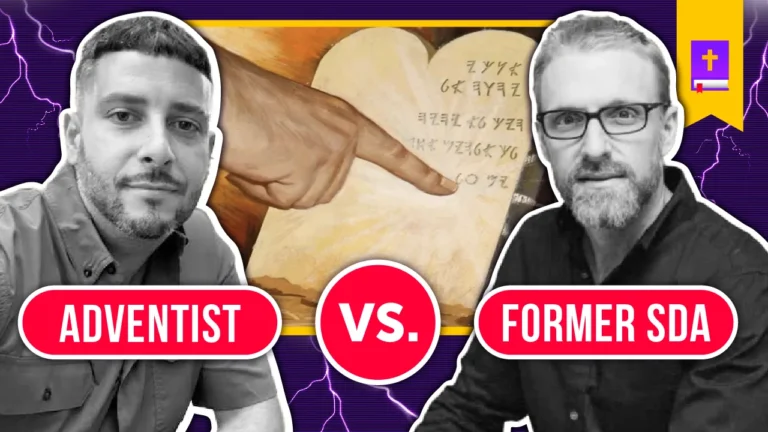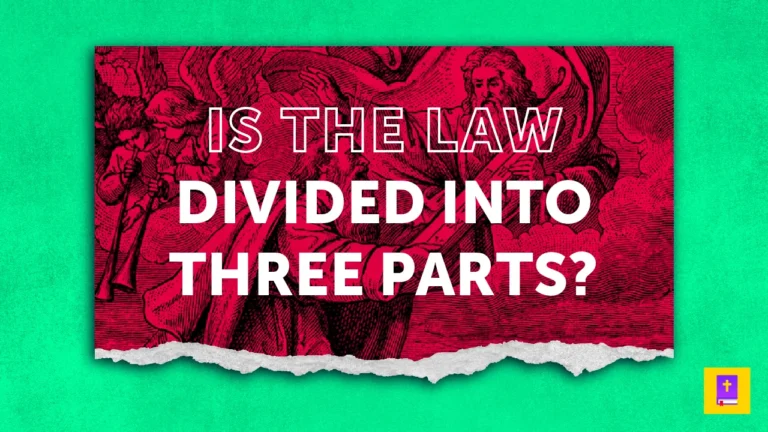They reject that God sustains the existence of the human soul upon it departing the body and teach that the soul is a combination of “the breath of life” and your physical body. They believe “breath” and “spirit” are one and the same principle of life. Once the “breath of life” (what they believe spirit is) departs from your body, the soul no longer exists. Once a person physically dies, they aren’t sleeping, but rather have ceased to exist. It is often claimed that the SDA Church affirms soul sleep, but a more accurate descriptor would be that they affirm soul death.
Ellen G. White, who the Adventist Church upholds as divinely inspired and correcting of inaccurate interpretations of scripture, claimed to be shown in vision that the belief in God sustaining the soul after death is one of the greatest errors and deceptions of the day along with Sunday sacredness. She said these two doctrines send their victims with lightning speed to perdition.
This is because they misunderstand what Christians believe the bible teaches on the subject. Christians do not believe that the soul is naturally immortal by virtue of existing. The human soul had a beginning and is only sustained by God who alone has natural immortality (no beginning and no end).
Jesus taught a dichotomy between the body and soul, as did Paul the Apostle. The clearest example of this is Matthew 10:28 where Jesus says to not fear those who can kill the body and not the soul, but fear Him who is able to cast both soul and body into Hell. If the Adventist teaching on this were true, it would mean that man can kill the soul by killing the body.
In Philippians 1:21-4, Paul told the Philippian churches that to live is Christ and to die is gain where he then goes on to say that if he were to go on living in the body, it would be a fruitful labor for the church’s sake but he was torn between the two—having a desire to depart his body and be with Christ, which is far better, but it is more necessary for the church’s benefit that he remain in the body to serve and edify them.
The same thing is said of Paul in 2 Corinthians 5:1-8 where he is describing the mortal body we currently have as a tent that we are within (2 Corinthians 5:4) longing for our glorified, resurrected bodies. He goes on to say that we can be away from this body and present with Christ, but whether we are at home in the body or away from it we should strive to please God. If consciousness could not take place apart from the body, then one would not be able to please God apart from it (2 Corinthians 5:8-9).
If the Adventist understanding of the soul were correct, that no conscious activity can take part outside of the physical body with breath, then it would make no sense for Paul to say he desired to depart his body and be with Christ. The Adventist understanding would mean Paul was saying he desired to cease to exist and “be with Christ” would simply mean his unconscious breath would go back to God who gave it.
We also see King Nebuchadnezzar being tormented in his spirit while his body lay inactive and asleep (Daniel 2:1), evidencing that the spirit is not universally referred to as the “breath of life” like the SDA Church claims. The king was not tormented in his breath while he slept, yet it wasn’t in his body he experienced this either. A similar thing is said of Daniel (Daniel 7:1) where we are then told this experience happened to Daniel’s spirit (Daniel 7:15-6).
The Hebrew phrasing of “my spirit within me” and “in my head” describe Daniel’s spirit being like a sheath and a sword—his head being the sheath and the sword being inside this sheath—giving us a picture of a dichotomy between the body and the spirit similar to what Paul describes in 2 Corinthians 5. To hear this broken down further, watch here.










